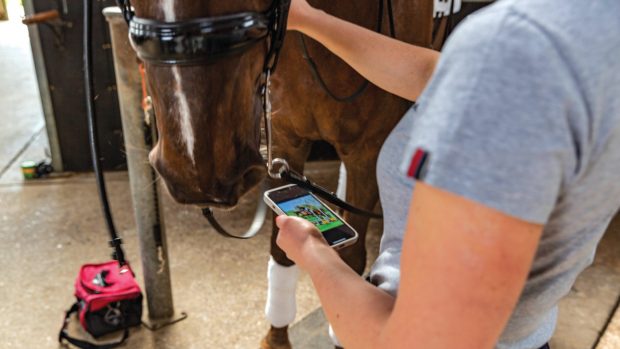A woman has been arrested in Essex for obtaining horses around the country by deception.
Inspector Peter Gardner of Essex Police told H&H that he had been investigating the woman in connection with loaned horses that had been sold on fraudulently. He had also been exploring possible links with a similar trader in Derbyshire.
He explained: Weve been collating evidence, but it is not a clear-cut matter there are several issues involved. The person is currently on police bail until 15 July while the Crown Prosecution Service [CPS] reviews the evidence.
Valerie Crawford, chairman of Essex Horsewatch, which works in partnership with Essex Police, said three owners of lame horses had each responded to practically the same advert placed on Horsemart.co.uk and in the local Yellow Advertiser newspaper. The advert claimed to be seeking a companion for a lame mare.
Ms Crawford said: We think the same person took all these companion horses and then sold them on. When a horse is on loan as a companion it remains the property of the owner.
Stuart Farr of Laytons Solicitors in Manchester advises anyone arranging a loan with a stranger to: Check out the ID of the person you will be loaning to very carefully. Get a loan agreement and record each partys responsibilities.
Loaning dos and donts
- Advertise widely and word your advert carefully. Be discerning dont just accept the first applicant that comes along.
- Let prospective loanees spend some time with your horse and watch how they handle him.
- Carefully vet the person you are loaning your horse or pony to. Ask to see proof of identity with an address, and references. Wherever possible visit the premises at which your horse will be kept and check them out with local suppliers such as tack shops and feed merchants.
- Make sure your horse is freezemarked and/or microchipped and retain the documents.
- Ensure the loanee will be able to provide for your animals welfare adequately. If your horse has specialist needs check what arrangements will be in place for its care.
- Get a solicitor to draw up a fair and reasonable contract for both parties to sign. Review the contract on a regular basis. Take nothing for granted, even with friends. Circumstances do change, so be businesslike.
- Unless it has formed part of the original agreement, do not expect to be able to visit your horse whenever you please.
- If you have cause for concern, such as a breach of contract, contact a solicitor for advice on the best course of action.
Read this news story in full, including the views of the owners involved, in today’s issue of Horse & Hound (12 July, ’07)



